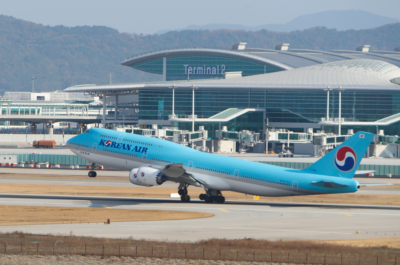A multi-national, volunteer group of experts in airport cargo operations is playing a critical role in the flow of international aid to hundreds of thousands of…
A multi-national, volunteer group of experts in airport cargo operations is playing a critical role in the flow of international aid to hundreds of thousands of tsunami victims in Sri Lanka, in possibly the largest emergency logistics operation ever mounted on the island.
Supported by Emirates Airline, Dnata and five other companies, the Dubai-based Airport Emergency Team (AET) of the Disaster Resource Network (DRN) was deployed at Colombo`s Bandaranaike International Airport for the first time since the AET`s establishment, just three days after the country was ravaged by the tsunamis of 26th December.
Its mandate is to help manage all humanitarian cargo arriving on charter flights into the country, enabling a quick turnaround of aircraft, and the efficient dispatch of relief goods to the affected areas.
The Airport Emergency Team has been set up under the patronage of Emirates` Chairman HH Sheikh Ahmed Bin Saeed Al Maktoum and is made up of representatives from seven participating organisations: Emirates, Dnata, DHL, TNT, Aramex, Chapman Freeborn and Dubai Aid City.
The AET`s nine-member group in Sri Lanka is headed by Chris Weeks of DHL, as Director Europe, Middle East and Africa for the Disaster Resource Network, and Team Leader David Ambridge of Dnata Cargo. As a co-sponsor of the team, Emirates has contributed eight staff members from across the Emirates Group, who have been or will be in Colombo to support the coordination of the relief efforts.
Stemming from the experience of two volunteers who assisted in disaster recovery after earthquakes in Iran and Morocco, the Airport Emergency Team`s mission is to provide assistance across country borders to overloaded airports in times of crisis.
In total, about 40 volunteers from the seven participating organisations are involved in setting up and running the initiative. These volunteers work in rotation at airports needing assistance, providing 24 hour support and leaving the existing cargo handling infrastructure free to carry out its routine work.
In Colombo, its first operational deployment, the AET has taken delivery of nearly 800 tons of cargo flown in from many countries to Sri Lanka, operating out of a 6000 square-meter cargo terminal still under construction. The cargo included large consignments of government-to-government assistance as well as consignments from non-governmental organisations, aid agencies and individual donors. As charter flights continue to arrive, the volume of humanitarian assistance is expected to increase.
Director Chris Weeks said: We have received excellent cooperation from the airport authorities. They have provided us with a building, which though incomplete is adequate for our purposes, as well as forklift trucks, telephone, electricity and other facilities.
He said the dispatch of family tents to Jaffna and Trincomalee had commenced, using Indian Air Force MI8 helicopters and Sri Lanka Air Force AN32 aircraft. We are looking for more aircraft to distribute the humanitarian assistance because of the congestion on the road network, he said.
Team Leader David Ambridge added: This is the first time that our Airport Emergency Team has been activated, and its usefulness – and timeliness of its creation – has just been abundantly demonstrated. The AET also is enabling each one of us to make a contribution, and to make a difference in the lives of many of the tsunami survivors.
In addition to its support for the Airport Emergency Team, Emirates has transported food, medicines and clothes totalling 10 tonnes from the Emirates Group, 1000 tents from a Sri Lankan donor, and relief and medical supplies from Gothenburg to Colombo, commissioned by the Sri Lankan embassy in Sweden.

Photo caption:
David Ambridge, leader of the Dubai-based Airport Emergency Team, at the airport warehouse in Colombo.

























































![[PR] PR_Ascott and Vimut Hospital_2024](https://www.traveldailynews.asia/wp-content/uploads/2024/04/PR-PR_Ascott-and-Vimut-Hospital_2024-400x265.jpg)







